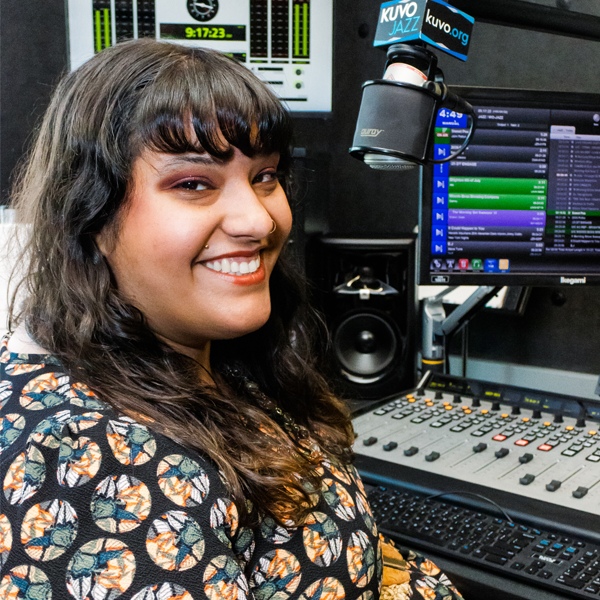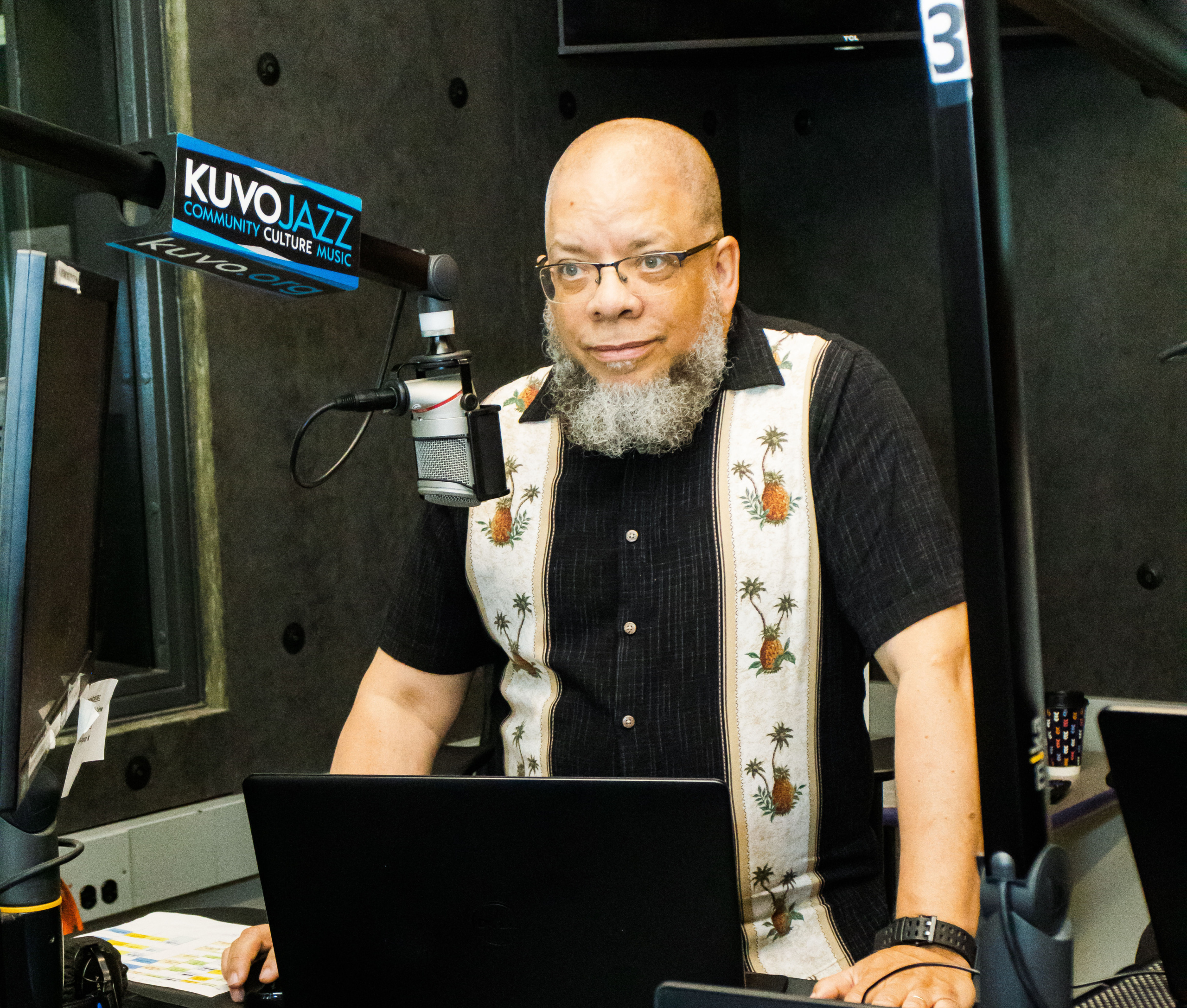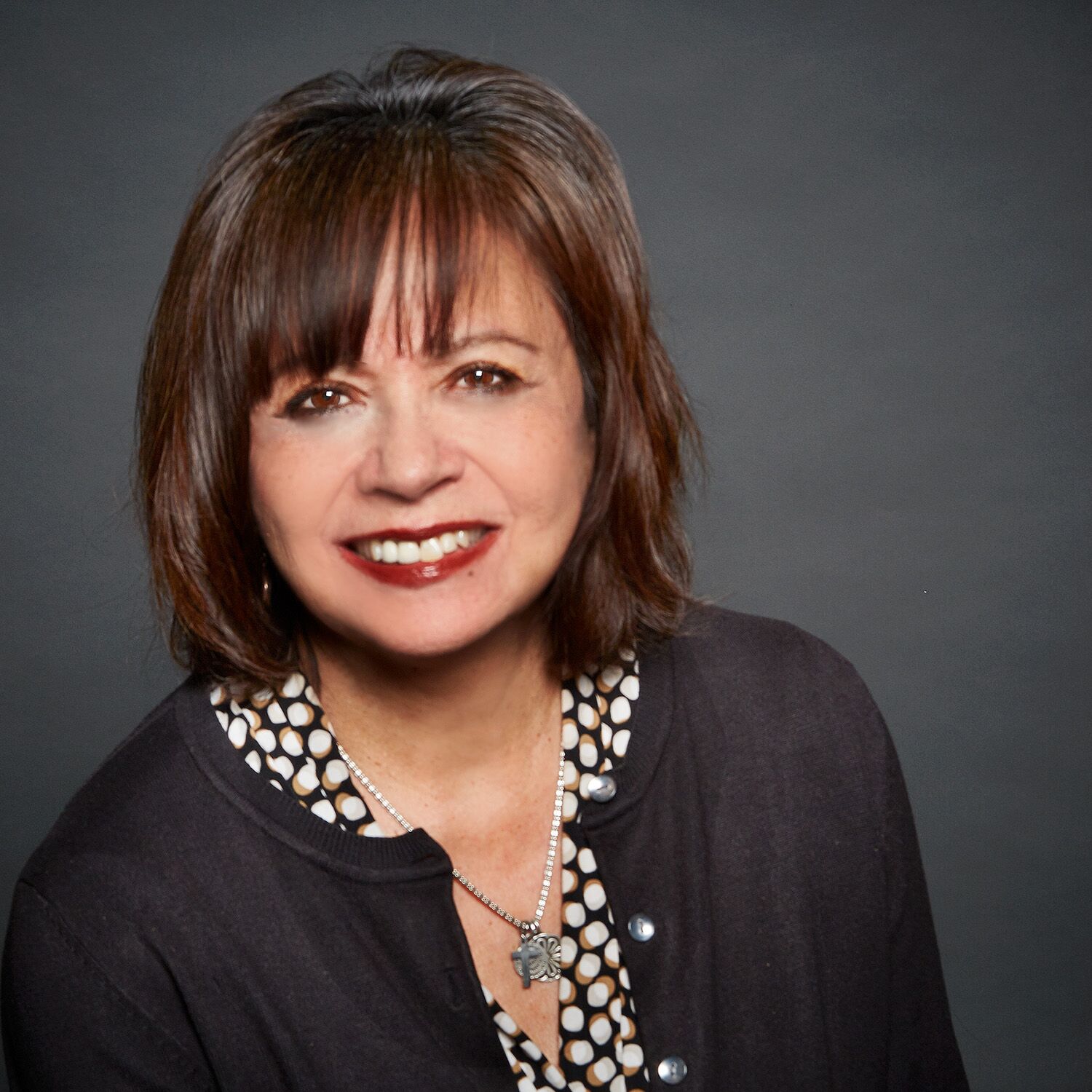Scotty Barnhart and the Count Basie Orchestra at Live at the Vineyards
The Morning Set reached out to Scotty Barnhart, leader of the Count Basie Orchestra, in anticipation for their performance at our signature fundraising event: Live at the Vineyards happening August 12th. On Live & Local, we aired a few highlights of this conversation but we share the full conversation and transcript below for your enjoyment.
For tickets and information on Live at the Vineyards, click here.
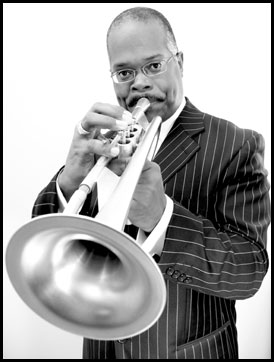
Carlos Lando:
Joining us this morning on The Morning Set: Scotty Barnhart – internationally acclaimed jazz trumpeter, composer, arranger, educator, author, and the director of the legendary Count Basie orchestra. Good to have you on the show, Scotty.
Scotty Barnhart:
Well, thank you! Thanks for having me.
Carlos Lando:
Well, I’m glad we caught up with you, man. You slowed down just enough for us to be able to grab this interview. You know, I want to start, before we go back, I want to start in the moment right now. You got a lot of things going on – but the Count Basie Orchestra, they have been on a roll in recent years, lots of acclaim, lots of adulation, a lot of things going on under your direction. How is the band doing? How are you feeling leading the band? You’re still getting that that kind of love from everyone. How is all this possible after all these years, with the whole Basie thing – it’s just amazing to me.
Scotty Barnhart:
Well, you know, again man – two words: Count Basie. I mean, Count Basie, to me, and to many people, not just the gentleman in the orchestra, but he was the greatest bandleader of all time. I mean, think about it – he passed away in 1984, 39 years ago, and this orchestra is still on the road, still at the top of its game, still identifiable in one or two beats one or two notes, still selling out concert halls, I mean, big concert halls, as well as clubs and universities, or whatever. That’s all to him. I mean, he knew what he was doing. He perfected his craft for 50 years while he was leading the orchestra. And the way that he set it up, he really made it easy for the gentlemen to come after him: Thad Jones, you know, Frank Foster, myself – It was just easy to keep going. And the musicians wanted it to keep going. He wanted it to keep going, the audiences around the world still wanting it to keep going. And we’re just doing what we can, you know, and I think also, the key to that is the right personnel. I mean, you’ve got to have the right personnel that really understand the orchestra – what it’s about, how we do things. What Mr. Basie wanted – everybody has to be on the same page as far as that goes…everywhere we go, we can feel the people’s love for Mr. Basie and our music, the way that we do things. So I’m just fortunate to be here, I was fortunate enough to even get asked to join the band, let alone direct it. So I’m still like a kid in a candy store. And I’m the luckiest cat on the planet, I can tell you that much. So my job is to keep it going as best I can, to do things that Mr. Basie would have done – to play things he would have played, the way he would have played it. And he just left the blueprint for me so all I have to do is study.. and I’m still studying. It’s not like I’m just you know, ‘Okay, let me put a setlist together and let’s go play it…’ I’m listening all the time, every day. I have my earbuds in or my headphones on when I’m traveling.. even with the band. I’m studying the recordings – I got all of them too.
Steve Chavis:
Scotty – I have in my mind, this Count Basie desk with a secret compartment. And there’s a letter – like the President of the United States – that gets passed from Thad Jones to Frank Foster to Grover Mitchell to Bill Hughes to Dennis Mackrel to you.
Scotty Barnhart:
Imagine what it feels like to sit in the orchestra, to play those parts, to help those things happen but to be standing in front of it, a foot away from it, and listening to it come at you.. That’s a whole other level. So, man the music and the arrangers – also I can’t over-emphasize how important the arrangers were to Mr. Basie. He didn’t let anyone just write for his band. And that still happens today – I’ll get something unsolicited from someone or even sometimes somebody might know me, and they’ll say, “Hey, man, here’s a chart.” And I can almost look at the score and tell if it’s going to work or not. Basie knew exactly what he wanted. Even composers such as and arrangers such as Neal Hefti, Quincy Jones, Frank Foster – Basie would still edit their arrangements. People sometimes don’t know that. Even Neal Hefti when he brought “A Little Doll” into Basie (which turned out to be one of the greatest big band ballads ever written), it wasn’t originally written as a ballad. It was written as an up-tempo tune and Basie heard and said, “Oh, no, no, no, no, no, no, no – this needs to be here.” And he changed it, made history. So Basie really knew what he wanted. Since it’s on my mind – I just have to tell you a quick story.
When I first joined, the bass player in the orchestra at that time was a guy named Cleveland Eaton. Now Cleveland Eaton also was the bassist with The Ramsey Lewis Trio, with Maurice White, the founder of Earth, Wind, and Fire – the three of them back in 1966-67. But by the time he joined Basie, and when I got there, he was still on bass. And to me (and I still feel this way today), the key to the Basie sound is two things: It’s the bass player, then the guitar, then the piano.. in that order, I think. Because if the bass player is not playing the right notes, it’s not walking the certain way – you can’t walk in the Basie Orchestra as if you’re Ron Carter playing with Miles Davis, that doesn’t work. You can’t walk like Charles Mingus in here, you can’t do it – it doesn’t work. There’s a very specific way and I always could tell that it was the bass, even as a kid! I’m like, ‘Okay, this bass player in this band, they are doing…’ you know? So anyway, fast forward. We’re in Thailand, 1993 – I’m in my first year in the orchestra. And the bass player, Cleve Eaton, had been knocking me out for a whole year – I’ve been in the band a year this time. And I’m like, ‘Man, this guy. How does he know how to play the certain notes that he’s playing?’ Because the note choice is a very deliberate thing – you don’t accidentally play the right baselines in his orchestra, you have to know what you’re doing. So I said, ‘You know what, let me just ask him. How does he do that?’ So I say, “Hey man, you gotta tell me: how do you know what notes to play behind Basie?” So he said, “Look – I’ll tell you, real simple,” And people never asked him this question before, but I’m asking right? He said, “Look, when I first joined the band, Basie made me set up my bass and my position on the stage, so that I could see his left hand. And whenever I would walk a certain way that he didn’t agree with, he would play the baseline for me.” So I said, “Oh, that’s it!” So Basie knew what he wanted. Basie shaped his baselines, and he didn’t care who was on bass in the orchestra – he made them set up so they could see his left hand.
So that’s just one little facet of why we sound like we sound. Again, he knew what he was doing. He knew what he wanted. He knew what he wanted from a saxophones, he knew what he wanted from the trombones, the trumpets. The soloist even…Basie was a very, very smart musician, a very brilliant leader, who knew how to get the best out of his musicians shaped around what his philosophy was. And he would draw them into his philosophy, which is really what a great leader does – you just draw people in without them sometimes even really knowing it? And pretty soon, they’re doing everything for you, which is still happening.
Carlos Lando:
I’ve always thought that in listening to the Basie rhythm section, that sparseness, that point in the band where the band is allowed to be everything you described, but at the same time relaxed, and swinging. In other words, the rhythm section, the band could get really loud and then all of a sudden, just these quiet passages with that subtleness of swing, always right there, always driving the band. It’s amazing. Helped that Freddie Green was there for 47 years too.
Scotty Barnhart:
Oh yeah, absolutely, man. Basie’s 50th concert anniversary, I think he’s at Carnegie Hall – George Benson’s on it, Sarah Vaughn, Tony Bennett, Joe Williams, all these people, but Freddie Green, incidentally, is not there. He took that night off for whatever reason, he just took that night off. And so, somebody asked Basie after the show, “How was playing without Freddie Green?” He said, “Oh, I can have my own tempos now,” because Freddie would just lock that (indecipherable) and play in such a way, man.
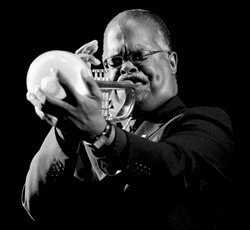
When I first heard the band when I was like, I think I was 11 or 12 when I first heard them live in Atlanta, it was just an unbelievable wall of sound that I could feel. It was like somebody turned the heater on, I could just feel it, you know? But Freddie Green and all of the gentleman in the orchestra, all of the long stays.. You know, Charles Fowlkes on the baritone saxophone, Marshal Royal on alto – they were there together in that section for 20 plus years. Sonny Cohn on trumpet for 30 years. Bill Hughes, who was there for 57 years. So the musicians never left, basically, and they stayed and they helped to maintain and usher in the new musicians who come in. And all you have to do when you come in is just keep your mouth shut, and just listen – figure out what they’re doing because the way that we actually play, the music that you’re looking at doesn’t reflect that. I tell people that all the time. You think you can really sight read? Okay, come in and play with us. Because what you’re reading, we’re not playing that. We’ve already figured out what to change, what to alter, what to play late, what to play early… and that stuff has been happening for decades. You take a tune like “Shiny Stockings”, it was written in the mid-50s – We don’t play it how they played it in 1956. We don’t play it like that anymore. But it’s still the same tune. It’s just little subtle things here and there. And once you figure that out, you become a breathing part of the group. You know exactly when you’re getting soft, exactly when you’re getting loud. So, it’s a very interesting orchestra. And I’ve been on the road with The Ellington Orchestra, I’ve been on the road with The Lincoln Center Orchestra and the Basie Book is the hardest book. I’ll just flat-out tell you that. It’s the hardest book because there’s very little, if any, room for error – none at all. The closest to that would be Lincoln Center, and they play a lot of stuff. But the Ellington Book is really loose and if you come in a little late or a little early in the Ellington book, no big deal. I mean, you’ll still be there. That’s just the way Duke wrote his music. And I’ve been on the road in those bands and I know the Basie Book, that’s like the scariest book ever man, because you can’t- As soon as you make a mistake, everybody knows it. As a matter of fact, a buddy of mine, I won’t tell his name, he’s in the Ellington Orchestra. He’s been there a long time so he subs with us, you know, whenever I need somebody to sub in the section and we were just talking about this a month ago – He said, “Man, I don’t know.. Every time you call me, I don’t think I could do it.” But anyway, it is what it is.
Steve Chavis:
Let’s turn the page a little bit to what’s happening today. Of course, Live at Birdland was an amazing success. And I mean, you gave us so much music in that project, a double CD. Thanks for holding back and giving that all to us at once. The Live at Birdland project was a great refresher for a whole lot of people that needed to catch up on the Count Basie sound. Right now, what’s on turntables and radio stations around the country, is this very modernist approach to bass he called Late Night Basie, but he’s always been a modernist: Atomic Basie, Basie on the Beatles.. How does this reflect the hipness of that gentleman who kept his music current for all those years? And even to today with Talib Kweli, Jazzmeia Horn, Terence Blanchard, Nicholas Payton and all that.
Scotty Barnhart:
Yeah. Well, I mean, it’s just another example of how Mr. Basie, his music, is timeless. I mean, it’s a vast catalog, but you can pretty much take any tune that the orchestra has played since 1935 and play it today with the musicians of today and it still sounds fresh. And that’s basically what we did. You know, it was kind of a bold experiment to be honest with you, but I knew it would be fine. As long as the music is good man, as long as the music is of great quality, it’s going to be okay. I mean, you could take Beethoven’s Fifth like Walter Murphy did back in 1978, or whatever it was, and it still sounds hip. It was funky, he made it funky but it was still Beethoven Fifth because of what he did with it. So same thing with us today. We knew that if we put some of Basie’s tunes like “Blue & Sentimental” in the hands of someone like Larkin Poe, they would be great with it. I think Basie would have loved it, especially “Blue & Sentimental” – he would have loved hearing them do that. So we just tried to make sure that we stay as relevant as possible. And, you know, a lot of the times I think people forget that cooperation or collaboration is one of the greatest assets that a musician can have. You know, it’s not all about competition all the time trying to get more sales than somebody or win more Grammys than somebody, but what about collaboration, man? What about, you know, taking supposed opposites and putting them together and seeing what you can do? And I strongly believe in that – especially for our next project, the one that’s coming out in September. That’s just going to knock people’s socks off – I mean, all the way off. You know what I mean? We just try to do what we think Mr. Basie would have done. Even back in the 70s, he toured with Tom Jones, people forget that. So I think if we can get back to the realm of collaborating with other artists outside of jazz, even – country artists or whatever the genre may be, you just kind of meet in the middle and figure out a good way to still stay true to what we do and how we play. As long as we can just play how we play, we’ll be fine. And I have some other ideas of things that we’ll do in the future too that I hope we can get done. But this new Late Night Basie thing, I think it sounds good and the young musicians are checking it out, which is really good. My students at Florida State were shocked when I told them Lettuce and Larkin Poe.. they were like “WHAT! Let me go get that!” You’ve got these 19-20 year old kids that really are interested in it. And that’ll hopefully spur them on to do more research on Basie himself and go get stuff as far back as 1936-37 – you know, with the Decca recordings up through to today, so they really can see the totality of what the orchestra has done.

Stay connected to KUVO’s programs and our community! Sign up for the Oasis E-News today!
Photo Credit: Photos Courtesy of http://www.scottybarnhart.com/ and https://www.thecountbasieorchestra.com/
Become a Member
Join the growing family of people who believe that music is essential to our community. Your donation supports the work we do, the programs you count on, and the events you enjoy.
Download the App
Download KUVO's FREE app today! The KUVO Public Radio App allows you to take KUVO's music and news with you anywhere, anytime!
